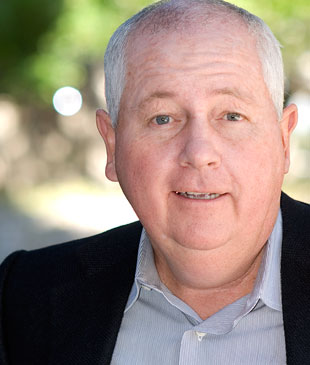Waiting for Google
 It's the exit strategy for too many entrepreneurs: "Google's a target exit partner." As an angel investor I've heard this many times, and, who knows? It happens occasionally, so like a rat in a maze, the entrepreneur continues to search for this piece of cheese even though statistically it's rare.
It's the exit strategy for too many entrepreneurs: "Google's a target exit partner." As an angel investor I've heard this many times, and, who knows? It happens occasionally, so like a rat in a maze, the entrepreneur continues to search for this piece of cheese even though statistically it's rare.
In the past week we've seen Google announce a multi-billion dollar acquisition of Motorola Mobility; if you had their cash you'd be elephant hunting, too. Like large VC funds, they have too much money to be looking at sub-100 million dollar deals, let alone sub-20. Meanwhile entrepreneurs dream.
My latest interview with Scotland's Nelson Gray shows that this "Waiting for Godot" syndrome is a global phenomenon. At least in Scotland, angels like Gray can dispute this exit fantasy by simply asking: just how many Scottish startups has Google acquired to date. Answer, none; it's more likely to be struck by lightening. Other guests confirm this; Kevin Covert of Covert & Company described why angel groups see so few exits: "acquirers want to do deals that move the needle". Little deals don't do that for big companies; little deals might do that for smaller companies.
The whole concept of determining the exit before making the investment is a relatively new concept. Basil Peters, no relation, and his ground breaking book Early Exits was like a slap in the face. Or was it more like the kiss that broke the spell? Either way, angel investors had to wake up to the fact that most deals exit for relatively small amounts, like $15 to $20million. So the home run is more rare, but the opportunity to grow a company quickly and get a nice return, that possibility exists and it's worth focusing on from the very beginning, before you write a check. Sounds so reasonable, right? But this was an earth shattering insight for many angel investors. Speaking just for myself, I would make a typical angel-sized investment then sit back and wait for venture capital to come along, hopefully just before the company ran out of cash, to make the next raise and take the deal away from us. As I've heard from so many VCs, "hope is not a strategy," yet in angel circles this was common practice. It's only after a decade of dismal returns in our early-stage portfolios are we forced to reconsider our approach.
Advice to angel investors: understand who will acquire your darling startup before you write that first check, and sorry, Google isn't a realistic target. Same for HP.
Frank Peters is an angel investor, chairman emeritus of the Tech Coast Angels, and host of the Frank Peters Show, a podcast dedicated to angel investing and venture capital.
 Tony Greenberg
Tony Greenberg
 Ivan Nikkhoo, Managing Partner – Navigate Ventures
Ivan Nikkhoo, Managing Partner – Navigate Ventures Michael Sherman, Neil Elan and Karine Akopchikyan
Michael Sherman, Neil Elan and Karine Akopchikyan Alejandro Guerrero
Alejandro Guerrero Eric Eide, Alliance for SoCal Innovation
Eric Eide, Alliance for SoCal Innovation Kevin DeBre
Kevin DeBre Braven Greenelsh
Braven Greenelsh Rob Freelen, Los Angeles Market Manager, Silicon Valley Bank
Rob Freelen, Los Angeles Market Manager, Silicon Valley Bank Braven Greenelsh
Braven Greenelsh Kaäre Wagner, Silicon Valley Bank
Kaäre Wagner, Silicon Valley Bank Al Guerrero, Silicon Valley Bank
Al Guerrero, Silicon Valley Bank Rob Freelen, Los Angeles Market Manager, Silicon Valley Bank
Rob Freelen, Los Angeles Market Manager, Silicon Valley Bank Sid Mohasseb
Sid Mohasseb William Hsu
William Hsu Braven Greenelsh
Braven Greenelsh Dinesh Ravishanker
Dinesh Ravishanker Dina Lozosfky
Dina Lozosfky Melinda Moore
Melinda Moore Ivan Nikhoo
Ivan Nikhoo Jaspar Weir
Jaspar Weir Erik Caso
Erik Caso Tracy Olmstead Williams
Tracy Olmstead Williams Dave Berkus
Dave Berkus Bernard Luthi
Bernard Luthi Peter Cowen
Peter Cowen Nick Hedges
Nick Hedges Eric Larsen
Eric Larsen Michael Terpin
Michael Terpin Steve Reich
Steve Reich